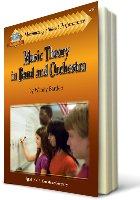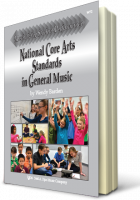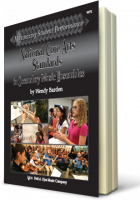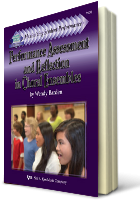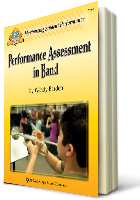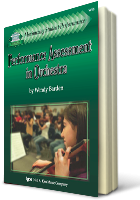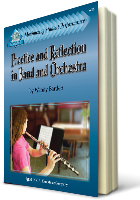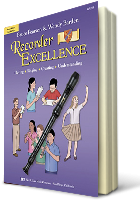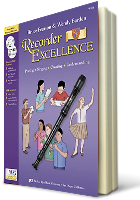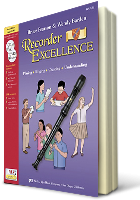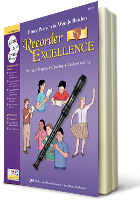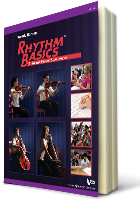Looking forward to the upcoming performance
True or False? Everyone in your ensemble or music class is looking forward to performing in the upcoming concert. False. There are likely several students that love to make music, but who also dread the thought of performing in a concert.
A few of these students may face family dynamics that make it difficult to participate the concert.
- Mom and Dad work evenings and the student must care for younger siblings.
- There is no ride back to school.
- The student is dropped off before the concert starts, and picked up well after all other cars have cleared the parking lot. Family members are rarely in the audience to share their music.
- The student doesn’t have, and isn’t able to get, the required shoes or clothing.
Given a few days, we can often help a student solve any of these challenges.
Another possibility? Anxiousness or anxiety about performing in public takes over and singing or playing for others becomes almost unbearable.
Most musicians experience jitters before a performance. As we know, anticipation or excitement can be positive. But when those same jitters become overwhelming, that feeling can quickly turn negative to a point that students would rather avoid the performance all together.
What might they be anxious about or afraid of? Anxious students often comment that everyone will be looking at them and they are afraid of making mistakes—of not being perfect. Students don’t want to embarrass themselves or disappoint others.
Why would they think that? There may have been a time when a performance didn’t go very well… for a variety of reasons. Perhaps students have unrealistic expectations of live performance. All musicians want the best possible performance, but rarely is one flawless.
Here are seven things you can do to help students’ have realistic performance expectations and a positive experience.
- As the director or teacher, are you calm about the performance? Do you believe students will be successful? Either yes or no, it shows and students pick up on that!
- Be sure your students get past the notes and rhythms in the music and are able to communicate the composer’s intent. To do this, select music that is an appropriate level of difficulty. In rehearsal, give specific, descriptive feedback so students know what they do well, where they need improvement, and what to do to improve. Develop muscle memory so the performance is automatic, then “just do it!” Finally, avoid making changes in the music close to a performance. The younger the musician, the more important this is.
- As the performance draws near, change the focus in rehearsals from nit-picking for errors to communicating the composer’s intent. (Often the title, lyrics, and rehearsal or program notes give us important clues.) Accurate notes and rhythms are important, but we need to get beyond those to communicate the mood or feeling of the music.
- Are you able to rehearse in the performance space prior to the concert? What will students see, feel, hear during the performance? How will students get on stage or to their places? We can help alleviate anxiousness when everyone knows what to expect.
- Remind students that friends and family will be in the audience. They are all “rooting” for them and want them to do well!
- Arrange low-stakes performance situations such as inviting the school secretary to listen to a song, or inviting parents into the classroom for an informance rather than performing a concert on the stage.
- We all want to give the best performance we can. When there is an occasional error—and there will be—don’t over generalize. A few errors do not mean we are a total failure!
Yes, and… After a performance, teachers frequently lead a class discussion about how students thought it went or have them watch the video recording and comment. It’s human nature to watch ourselves or focus on mistakes, and that’s exactly where students will go unless we can redirect their thinking. Next time, consider using one of these three written concert reflections. Each prompt helps students focus on positive aspects of the experience and ensures you hear from everyone.
A) Complete four of the six sentences about the concert and be sure to include the word “because” in each sentence:
- I really liked…
- My family really liked…
- I was surprised…
- I am proud…
- Next time…
- I wish…
B) Name the piece you feel we performed best, and explain what made this piece stand out from the others.
C) How has this set of concert music helped you grow as a musician? State your opinion, and explain using at least three examples from the music.
Thanks for pausing with me for a few minutes in your busy week. Have a good one!
____________________
Allan, Diana. “Peak Performance For Musicians: Empowering Performers to Excel.” www.musicpeakperformance.com (accessed 8/18/17)
Barden, Wendy. Practice and Reflection in Band and Orchestra. San Diego: Kjos Music Press (2010).
Barden, Wendy. Performance Assessment and Reflection in Choral Ensembles. San Digeo: Kjos Music Press (2011).
Green, Barry. “Barry Green’s Inner Game of Music Part 1 of 2 – YouTube.” https://www.youtube.com/watch?v=aeE60psLrI8 (accessed 8/18/17)
Green, Barry. “Barry Green’s Inner Game of Music Part 2 of 2 – YouTube.” https://www.youtube.com/watch?v=IPqmMaZ0st0&t=200s (accessed 8/18/17)




